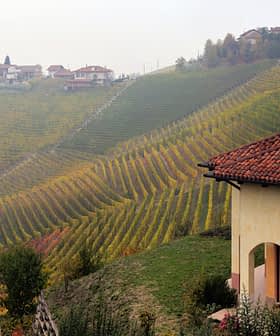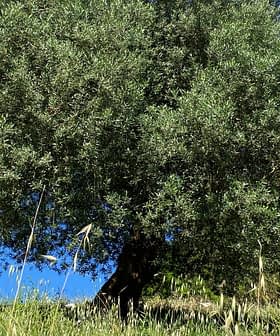University Receives Donation of Ancient Olive Varieties
The seedlings, which were recently donated by Banco Santander, will be studied before given new life when they are planted at the Rabanales University campus.
 Banco Santander
Banco SantanderThe University of Córdoba in Spain has received a donation of olive seedlings from uncatalogued ancient olive varieties.
They will be classified and preserved at the university’s Olive Germplasm Bank.
The seedlings, which were donated by Banco Santander, came from the varietal identification research work the University’s Higher Technical School of Agricultural Engineering and Forestry (ETSIAM) conducted on Banco Santander’s ancient olive tree collection.
See Also:Millenary Olive Seeds Found in TurkeyLocated at the bank’s headquarters in Boadilla del Monte in Madrid, this collection is considered the world’s most important private collection of olive trees.
The agreement between Banco Santander and the university’s UCOLIVO group has so far enabled the classification of more than 200 centenary and millenary olive trees in the collection.
Researchers applied morphological and molecular markers for the analysis of the trees, the majority of which were specimens of known varieties, including Farga and Lechín de Granada.
The research revealed three relevant major findings. They identified nine known olive varieties that are probably among the oldest.
They also detected a pattern of high frequency grafting done with wild olive trees in ancient times.
Finally, they discovered the existence of millenary varieties that had not yet been catalogued, but whose resistance over time suggests they are excellent specimens to study, specifically for the traits that affect their longevity. This could be instrumental for the improvement and sustainability of olive crops.
The university’s UCOLIVO group has been working on the identification of Banco Santander’s olive variety collection since 2013.
Banco Santander’s olive tree collection started in the early 2000s with the bank’s former president, Emilio Botín. He began a search for very high quality olive trees to be planted at the bank’s new headquarters and considered nature as a vehicle to create a working environment that made employees more comfortable and more productive.
Experts helped the now deceased Botín to assemble the collection of olive trees, which originally came from Spain, Portugal, Italy and North Africa. Botín began buying centenary olive trees for the collection as a means to protect them from being cut.
The collection extends over more than 350 acres and has some 1,500 trees, one-third of which are monumental and singular, including millenary olive trees. A team of professionals oversees and monitors the trees, conducting strict periodical controls of their development and phytosanitary condition.
The trees that grow from the donated seedlings will be planted at the Rabanales University campus where more than half of the world’s 1,200 olive varieties are preserved.
Prior to this exercise conducted by UCOLIVO, Banco Santander had already worked with Spain’s Higher Council for Scientific Research (CSIC) to complete the world’s first full DNA sequencing of an olive tree, a millenary tree, a copy of which was also donated by the bank to the University of Córdoba for its incorporation into the Olive Germplasm Bank.








